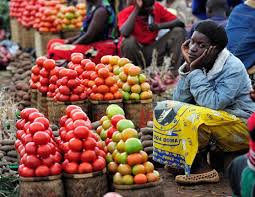Ghana’s food glut deepens: surplus grains pile up, farmers and value-chains under pressure

Ghana’s agricultural sector is facing a mounting crisis as more than 100,000 metric tonnes of maize and rice from the 2024 harvest remain unsold, under-lining a serious food-glut problem that threatens farmers, processors and national food security. AgriWatchGH+2Radio Tamale+2
Causes
Analysts and stakeholders point to the following root causes:
- A surge in cheap imports and large-scale smuggling of rice and maize undermine local producers by flooding markets with grain at artificially low prices. Radio Tamale+1
- Weak post-harvest infrastructure: inadequate storage, limited cold-chain capacity, and poor rural roads mean crops remain unsold or spoil before reaching market. GW Today+1
- Value-chain bottlenecks: domestic milling and processing plants are operating below capacity, while farmers lack guaranteed off-take and minimum pricing arrangements. AgriWatchGH+1
- Policy and market mismatch: While production has grown, market access and domestic sourcing (by state institutions or large off-takers) remain weak; concurrently, imports remain high. News Ghana+1
Impacts
The glut is already hurting livelihoods and food systems:
- Farmers have been forced to sell below production cost, exacerbating indebtedness and discouraging future planting. AgriWatchGH
- Processors and mills face financial strain; some have reduced operations or closed, undermining Ghana’s drive to build strong domestic agro-processing capacity. Radio Tamale
- The glut poses a paradox for food security: while food is in surplus domestically, the weak value chain and import dependency mean Ghana remains vulnerable and inefficient.
- Without decisive action, the 2025 harvest could face even greater accumulation of unsold stock, further destabilising the sector.
What’s being done & potential solutions
Government agencies and stakeholders have begun mobilising interventions:
- The National Food Buffer Stock Company has been instructed to purchase surplus grains to stabilise the market and reduce losses. Channel1 News+1
- Calls are increasing for the introduction of import quotas or domestic sourcing requirements, to ensure Ghanaian producers have guaranteed markets and aren’t out-competed by cheap foreign imports. News Ghana
- Innovations in storage and infrastructure are gaining traction: e.g., solar-powered cold storage in rural Ghana to reduce post-harvest waste. GW Today
- Strengthening farmer cooperatives, improving mechanisation and rural infrastructure, and enhancing value-chain linkages from production through processing and marketing have been recommended. AgriWatchGH
Recommendations for urgent action
To turn the tide, the following are critical:
- Require state procurement agencies (schools, armed forces, prisons, food-programmes) to source a defined percentage from Ghanaian producers, creating guaranteed demand.
- Enforce tighter border and import controls to prevent subsidy-driven smuggling and protect local grain prices.
- Expand storage capacity and ensure rapid off-take post-harvest to prevent pile-up.
- Provide subsidy or credit support to processors so they can buy at harvest time and process quickly.
- Promote value-addition (e.g., local milling, packaging, branding) so producers gain more than just raw commodity prices.
Outlook
Unless Ghana acts decisively, the food-glut could erode the progress made in boosting local production, driving small-scale farmers out of business, and increasing import dependency. For Ghana’s food sovereignty, it is not enough to produce more — the country must market and process more too.
As one agribusiness stakeholder bluntly put it: “Investing in local rice and maize is investing in Ghana’s economic independence, jobs and food sovereignty. The time to act is now.”

